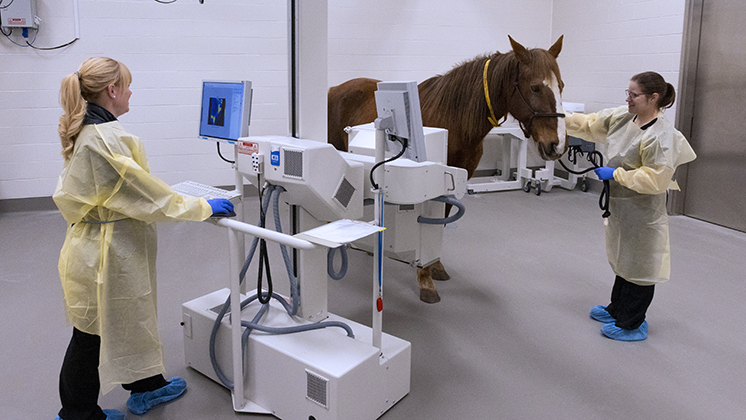
by Paige Allen, MS, RVT and Josh L. Clark, MS, RVT
Veterinary technicians play an integral role in animal healthcare, but often their compensation doesn't adequately reflect their skills, experience, or the complexity of their responsibilities. If you're a vet tech looking to increase your earnings, here are some strategies that may help you secure a raise:
The more experience and skills you have, the more valuable you become to your employer. Commit to learning new procedures, improving your efficiency, and expanding your knowledge base. Consider attending workshops, online courses, and continuing education (CE) opportunities to stay updated with the latest developments in veterinary medicine.
These are also opportunities to network with others in veterinary medicine to see what opportunities might interest you. Many states require vet techs to complete CE to maintain their credentials (RVT, CVT, LVT, LVMT).
Additional certifications can improve your competency and make you more desirable to employers. Specialized vet techs often earn more than their general practice counterparts. Some certifications, like the Veterinary Technician Specialist (VTS) designation, may require significant time and effort, but it could lead to an increase in your earning potential. Whether it's veterinary dental technology, emergency and critical care, or anesthesia, becoming a specialist not only increases your knowledge and skills but also makes you an asset to your practice, potentially leading to a higher salary. Each specialty has its own set of requirements.
Find out more about the VTS designation.
Other types of certification are American Association for Laboratory Animal Science (AALAS), Certified Veterinary Practice Manager (CVPM), Fear-Free, RECOVER, Habri. This is not an exhaustive list, but it gives you some ideas of how to increase your value to your patients and the practice.
Negotiating a raise requires showcasing the value you add to the practice. Maintain a record of your accomplishments, like positive client feedback, handling emergencies, or introducing efficient protocols. When talking about a raise, highlight these points to underline your contribution. It might feel like bragging, but it's necessary to advocate for your worth. Discussing money is often difficult, but beyond our love for animals, we must remember that the clinic is a business and that should be considered when discussing salary.
Open communication is crucial when asking for a raise. Schedule a meeting with your supervisor to discuss your salary. Come prepared with reasons why you deserve a raise, including examples of your work, accomplishments, and market data to support your request. Check the Bureau of Labor Statistics to compare your salary to national averages.
If your current employer is unable or unwilling to offer a raise, it might be time to consider other opportunities. Other practices may value your skills and experience more highly and offer a better compensation package.
Increasing your earning potential as a vet tech often requires a combination of skill development, effective communication, and strategic career decisions. Remember, it's important to advocate for your worth and ensure your compensation reflects your value to your veterinary practice.
Find your calling as a Purdue Veterinary Nurse!
Not quite ready to apply? Connect with us to learn more.

A concise guide examining the benefits and drawbacks of in-person veterinary technician education, including hands-on learning, networking, and challenges in flexibility and costs.
Read more
Understand the diverse acronyms used to represent veterinary technicians, from LVT to CrVT. Uncover the nuances between these titles, their state-specific usage, and understand that while the acronyms vary, the dedication to animal care remains consistent across all credentialed vet techs.
Read more
Explore the comprehensive guide on how to become a Veterinary Technician (Vet Tech). Learn about the essential steps including educational requirements, credentialing, and gaining practical experience. Start your journey to this rewarding career in animal healthcare today!
Read more